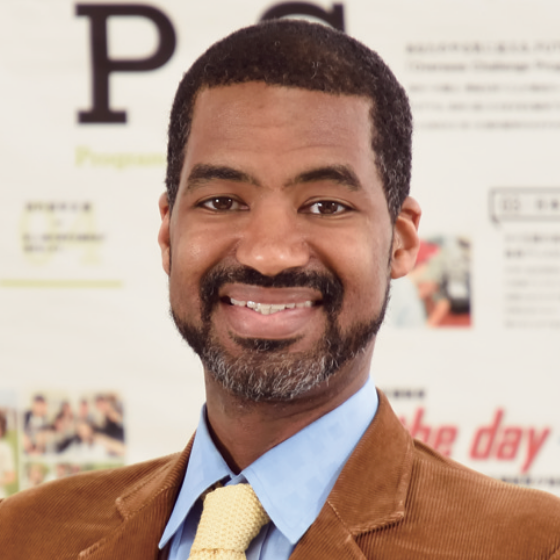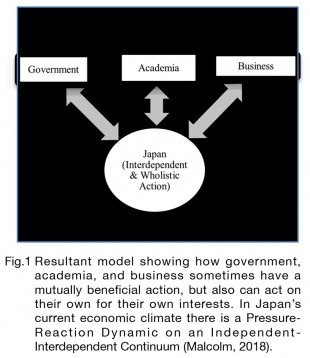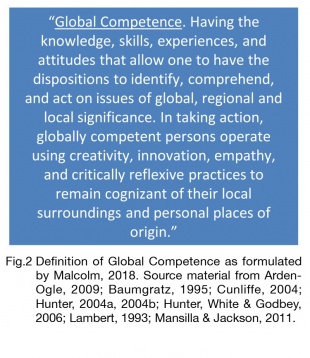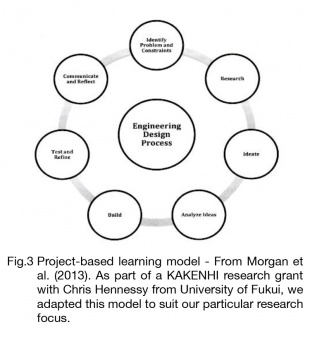- Home
- Faculty Members
- Organization for Fundamental Education
- Wayne Malcolm
Organization for Fundamental Education
- Key words
- Global Competence, Global Human Resource Development, Internationalization, Globalization, Study Abroad, Project-Based Learning

Foreign Languages / Assistant Professor of Foreign Languages
Wayne Malcolm
Education
Bachelor of Arts, Political Science – Syracuse University – 1997; Masters of Management, International – University of Phoenix – 2005; Diploma, Teaching English as a Foreign Language – Bridge Linguatec – 2006; Doctor of Education, Educational Leadership, Curriculum and Instruction – University of Phoenix – 2018
Professional Background
NOVA English Conversation School – 2002-2007; Akita International University – 2008-2012; Akita University – 2008-2012; Meitokukan High School Adult Culture Class – 2008-2012; University of Fukui – 2012-2017; Fukui University of Technology – 2017-Present
Consultations, Lectures, and Collaborative Research Themes
Global Human Resource Development, Defining and Assessing Global Competence, Qualitative Research Methods and Case Study Design, Project-Based Learning
Main research themes and their characteristics
「Global Competence; Project-Based Learning」
Global competence is defined as having the capacity and capabilities to possess the knowledge, skills, experiences, and attitudes that allow one to have the dispositions to identify, comprehend, and act on issues of global, regional and local significance. In taking action, globally competent persons operate using creativity, innovation, empathy, and critically reflexive practices to remain cognizant of their local surroundings and personal places of origin (Malcolm, 2018).
Project-Based learning is an excellent pedagogical approach allowing for multiple theoretical frameworks to guide lesson practice. Such an approach helps the students access their past and current knowledge schema in order to complete individual tasks that will eventually support a final objective. Upon completing the project at hand, learners will present their findings to a public audience thus providing the learners tangible experiences they can draw-on for future career opportunities.
Combining these two paths is a major focus of my academic research and practical teaching.
Finally, sound pedagogy can be less effective, even made irrelevant, if the good quality administrative leadership is absent. Future research efforts will explore leadership and the role it plays in Japan’s future. There are “leadership” institutes popping up as products from the various grant programs sponsored by the Japanese central government (e.g. – Top Global University). Affects of their programs require deeper exploration and examination.
Major academic publications
Malcolm, W. (2020). Taking Theory into the Classroom: Using Dilemma Analysis and Global Competence Practically. Multicultural Japan: Research and Methodologies for Teaching Language and Culture. Symposium Proceedings: Journal of Research and Pedagogy, Otamae University, Institute of International Education. ISSN 2189-3462.
Malcolm, W. A. (2018). Building Japan’s Globally Competent Workforce: A Qualitative Instrumental Case Study Exploring Socioeconomic Relationships. Dissertation available via ProQuest 13426248.
Malcolm, W. & Hennessy, C. (2017). “Development of a STEM Project-Based Learning Class in English: Narratives from Instructors at a Japanese National University”. Conference proceedings paper, Penkanbaru, Indonesia.
Malcolm, W. (2016). “A Way Forward in Developing Globally Competent Human Resources”. International Journal of Management and Leadership Studies, Vol. 1. ISSN 2311-7575
Contact Wayne Malcolm, Ed.D. - wamalcolm@fukui-ut.ac.jp – for a complete list of publications and presentations.



